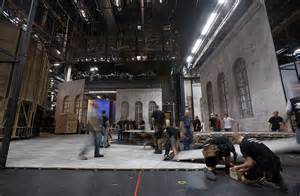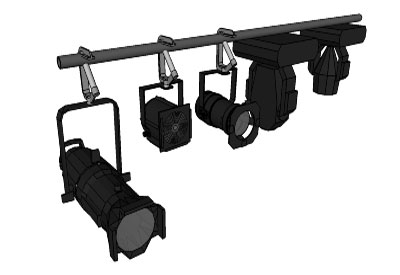

If you’re an actor in the theatre or a playwright, director, or designer, then chances are there will be times that you’ll need a “day job.” In fact, just about anyone who is starting out in the theatre will, at some point or another, be required to do something other than their intended profession.
Too many theatre people work at jobs not associated with the theatre. Often they do so because the job offers them a certain number of hours, decent pay, and the flexibility they require in order to be engaged in a profession where work comes and goes. However, not having a theatre jobs has one major drawback. That is that non-theatre related jobs take you away from the very place where you most want to work.
In Part I of this two-part series, we look at five jobs that you can often find and get hired to do that will keep you directly connected to the profession in a paying capacity. What should become obvious to you is that if you are training to be an actor, writer, director, designer or other theatre professional that you should also focus in other areas that are related in some manner to what you want to do.
Tech or Art-Related Work

Designers will usually acquire skills that also allow them to perform labor-intensive jobs, such as those of scenic painter, electrician, stitcher, or carpenter. All designers will have a certain amount of technical skill and knowledge that’s associated with their area, but often times they have not focused enough to get the skill level necessary to handle premium tech jobs. Find an area of technical expertise at which you can excel, get the right training, and then fallback on that when you need employment. It will keep you in the loop.
Public Relations and Marketing
If you can write press releases and copy, are able to create marketing packages and campaigns and/or know how to develop relationships with other groups and organizations, then you may find a job in public relations and marketing. Remember, the theatre is a business and the more you know about how it works and how to sell its products, the better positioned you’ll be in what is a very competitive marketplace.
Web Writing and Design and Social Media

Yes, theatres and productions are utilizing the Internet, including creating websites, online advertisements, and using social media, such as Instagram, Facebook, Pintrest, Twitter, and YouTube. If you can develop skills in these areas, you can become an indispensible part of a much-needed team and work in a cutting edge field.
Teaching Workshops and Classes
Whatever your skill may be there’s a good chance that you can get a part-time job running workshops or classes focusing on your topic of choice. Theatres, workshop providers, community organizations, and colleges all need skilled, trained, and educated instructors. Often people will apply for these jobs, get a fill-in spot, and turn that into something ongoing.
Supplies, Ancillary and/or Peripheral Products

Theatre bookshops, theatre lobby shops, and theatrical equipment rental shops can certainly help you make connections and stay involved in the business. The closer your job is associated with an actual production and the closer it is related to your primary area, the better. As an example, if you’re a sound designer working with a theatrical sound/audio supplier that makes more sense than laboring in a bookshop, while a performer may find that working in a theatre lobby shop offers them some exposure to other artists and the flexibility to actively audition.
Next Up
In the second part of this two-part series, we’ll consider a few more jobs that you can find in the theatre that will keep you connected to the industry, earn you money, and possibly lead to employment in the area of your choice. The theatre annals are filled will the names of artists who took important first steps in the business by getting a secondary job. James Lapine was a graphic artist, Dustin Hoffman a stage manager, Jerome Kern a rehearsal pianist, and George Abbott a stage manager and actor. Make the most of your theatrical opportunities by staying involved in the business.

 Random Item
Random Item